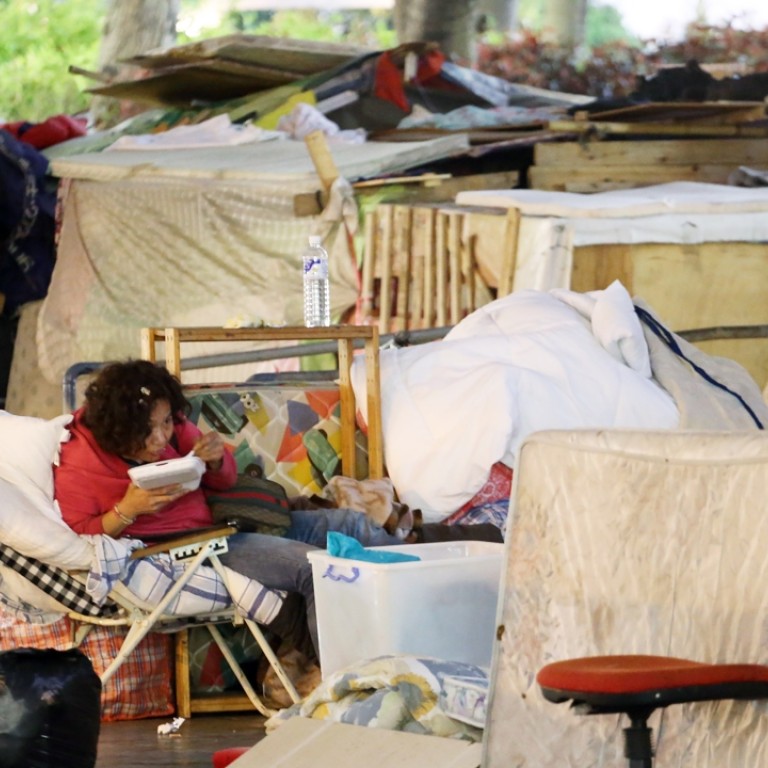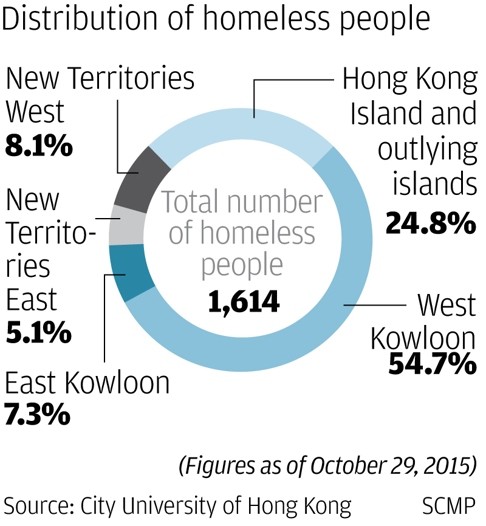
Hong Kong’s shame: homeless numbers soar amid high rents and squalid living conditions
Skyrocketing rents and squalid conditions in shoebox apartments have pushed more people onto the streets as the number of homeless in the city hit an all-time high last year.
The figure almost tripled over the past decade from 600 in 2004 to 1,614 last October, according to a city-wide headcount survey by 300 volunteers from five universities and four non-governmental organisations.
READ MORE: Hong’s Kong’s lack of affordable housing fuels ‘McSleeper’ trend, where the homeless sleep at McDonald’s
“They’ve been left with no choice. Rent has been rising too fast and the living environment is not worth the price,” said Wong Hung, an associate professor in the social work department of the Chinese University.
Most of the homeless are male, aged between 45 and 64. Nearly half have been street sleepers for over 10 years.

The irony is that more than half live in makeshift cardboard shacks under bridges and in parks in West Kowloon with a million-dollar view of skyscrapers with flats selling for HK$30 million.
For 58-year-old Leung Man-kit, rents and living conditions in subdivided flats became too much to bear. “I would spend the whole night battling with wood lice, I couldn’t really get any sleep,” he said.
READ MORE: Homeless woman found dead at Hong Kong McDonald’s 24 hours after she sat down as unaware customers ate
Leung, who earns HK$3,000 a month from odd jobs and another HK$2,000 in handouts, could not afford to pay the 70 square foot space that cost more than half his wages.
Many, like Leung, try to break out of their homelessness, but fail.
“Nobody wants to be homeless, but with such deplorable living conditions, they just end up accepting the reality they have to live as a homeless person,” said social worker Janet Jan Nga-chun.

The survey also found that the number of “McRefugees” – a term coined for homeless people staying overnight at 24-hour fast food restaurants such as McDonalds – had quadrupled in the past two years.
There are more than 250 “McRefugees” today, compared to only 57 in a 2013 survey. Their plight took on a new urgency last year when a homeless woman was found dead several hours after she slumped over in a McDonald’s outlet in Ping Shek.
NGOs are calling for more low-rental temporary shelters. Wong said many vacant schools or old buildings could be renovated to provide dormitory-like spaces for the homeless who need to live in urban areas close to their work places.
“They’re not asking for much, all they need is a place to sleep,” Wong said.

